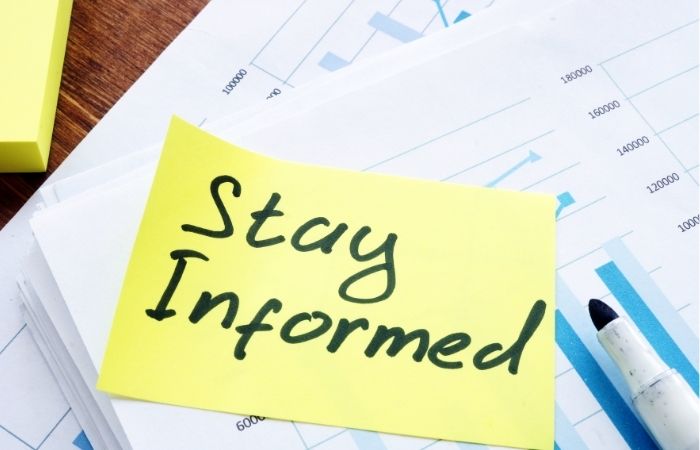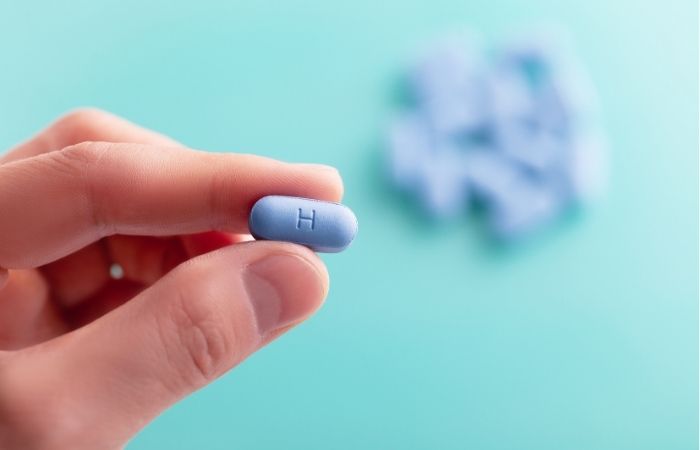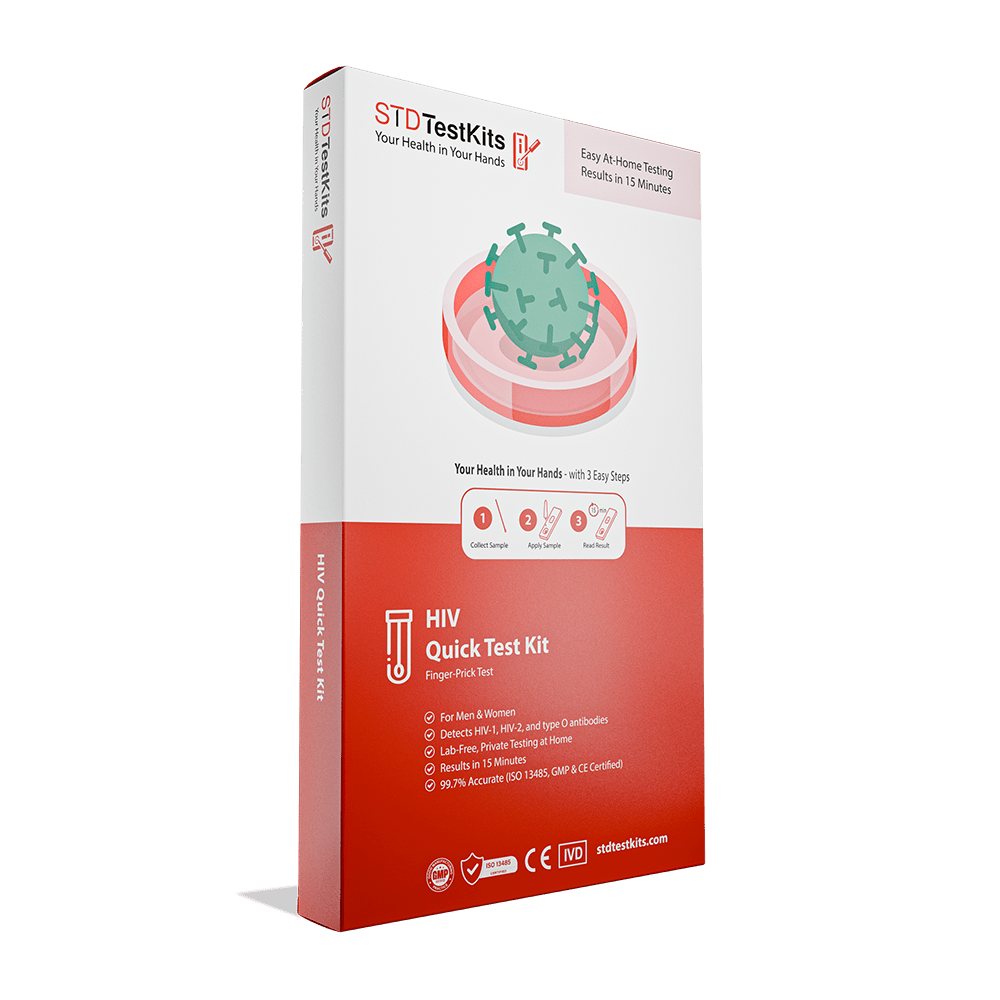Lesbian Sex Isn’t Risk-Free: What You Should Know About STD Testing
Quick Answer:Yes, you can get HIV from oral sex, but the risk is significantly lower than vaginal or anal sex. The risk depends on specific factors like viral load, presence of other STDs, and whether or not you have small cuts or lessions in your mouth.
“He Said It Was Low Risk. But I Tested Positive.”
Ty, 28, had just moved to Jackson, Mississippi, when he met Aaron. They’d hooked up a few times, mostly oral, nothing Ty thought was risky. Aaron was charming, older, had said he was “clean.” When Ty got sick a month later, fever, sore throat, night sweats, he thought it was just stress from the move. It wasn’t. A test at the local clinic confirmed it: HIV positive.
“I didn’t even think I needed to test. I wasn’t doing anything ‘serious,’ you know? Just oral. I wasn’t ready to hear the nurse say it was possible, likely, even.”
Ty’s story isn’t a horror story, it’s reality for more people than most would guess, especially in Southern states where stigma still eats up facts. Because yes, oral sex carries a real, though much lower, risk of HIV transmission. And if you’re on this page because you’re wondering if that quick hookup could’ve changed your life, you’re not alone. Thousands search this question every day, with no one to actually answer it plainly.

People are also looking for: Paid Sex, Real Panic: Do I Need to Get Tested?
So What’s the Actual Risk from Oral?
Let's get down to business. The CDC says that oral sex is a "low risk" activity, but that doesn't mean there is no risk. Semen, pre-cum, vaginal fluids, and blood can all carry HIV. The virus can get into the body through small cuts in the mouth, bleeding gums, or even inflamed tonsils during oral sex.
A 2018 study in the journal Sexually Transmitted Infections found that giving oral sex to an HIV-positive partner with a detectable viral load increased the risk, especially when ejaculation happened. The risk goes up even more if you have other infections like herpes or gonorrhea because they cause more inflammation and break down the mucous membranes.
This is what makes the difference:
- Giving oral sex to a partner with untreated HIV is more dangerous, especially if they ejaculate in your mouth.
- Lower Risk: Getting oral sex, especially if your partner is undetectable (U=U)
- Kissing is a very low-risk activity unless there is active bleeding or sores in the mouth.
It's not just the action; it's the situation as well. The amount of virus. Health of the mouth. Having other STDs. If someone finishes in your mouth or not. These facts make the difference between "basically no risk" and "this could have done it."
But I’m Feeling Symptoms. Could This Be HIV?
This is where anxiety goes into overdrive. You gave or received oral a few weeks ago, now your throat feels weird, you're sweaty at night, maybe even lightheaded. Could it be?
Here’s the problem: early HIV symptoms are notoriously vague. They can mimic a cold, flu, strep throat, or just a stressful week. But there are patterns to watch for, especially if you’re Googling this 10 to 20 days after exposure:
Common early signs of HIV (acute retroviral syndrome) include:
- Sore throat with no visible cause
- Night sweats, chills, or unexplained fever
- Rash that isn’t itchy, especially on chest or back
- Swollen lymph nodes (neck, groin, armpits)
- Fatigue that hits hard and fast
These symptoms typically show up 2–4 weeks after exposure. But they don’t always show up at all, some people go months without anything obvious. That’s why relying on symptoms alone is dangerous, especially when oral sex is involved. You can’t always “feel” HIV in the early stage. Testing is the only way to know.
Testing Anxiety Is Real, Especially in the South
In many parts of the American South, stigma is the real virus. It spreads faster than facts, kills curiosity, and keeps people from testing because they’re afraid of being labeled. If you grew up being taught that HIV equals “dirty” or “gay,” it takes real courage to even consider getting tested after an encounter you thought was safe.
In Alabama, Mississippi, Georgia, and Louisiana, HIV rates remain disproportionately high compared to the national average. And yet, federal data shows that testing rates lag behind. Why? Because judgment still exists, in clinics, in families, and even in how we talk about oral sex.
“The nurse didn’t believe me when I said it was just oral,” said one anonymous poster on Reddit. “She asked if I was ‘sure’ like I was hiding something. I almost left without testing.”
This shame can delay diagnosis, worsen outcomes, and reinforce the silence that allows HIV to keep spreading, quietly, but steadily. So if you're nervous about a recent encounter, know this: caring about your health doesn't make you dirty. It makes you smart.
Wait, So What About Saliva?
This one comes up in every panicked Google session: “Does HIV live in saliva?” Technically, yes, traces of the virus can be found in saliva. But transmission through spit alone is extremely rare. Saliva contains natural enzymes that actually break down the virus, making it an unfriendly environment for HIV to survive, let alone infect.
However, “saliva-only” scenarios are not what most people mean when they ask. The real risk comes when blood or semen is also involved. If your gums bleed, if there’s a cut in your mouth, or if your partner ejaculates and you swallow, you're not just dealing with saliva anymore. That’s where things shift into real, but still low, risk.
As the Mayo Clinic puts it:
“Casual contact, including kissing or sharing utensils, is not how HIV spreads. But oral sex with ejaculation can transmit the virus, especially if sores or gum disease are present.”
So no, you don’t have to panic because you kissed someone or gave a quick blow job at a party. But if ejaculation happened and you’re now experiencing flu-like symptoms, testing is absolutely the right next step.
“Undetectable” Means What, Exactly?
If you’ve read about HIV recently, you’ve probably seen the phrase: U=U. It stands for “Undetectable = Untransmittable.” And it’s not just a slogan, it’s a scientific fact backed by years of research and public health consensus.
If someone living with HIV is on medication and has an undetectable viral load (usually after 6 months of adherence to antiretrovirals), they cannot transmit HIV through sex. Not through oral, vaginal, or anal sex. The risk is zero.
This has revolutionized both treatment and stigma. But it also creates confusion. Many people assume all HIV-positive people are undetectable. That’s not the case. Access, affordability, racism in health care, and stigma all contribute to treatment gaps, especially in the South.
“I believed him when he said he was undetectable,” wrote one anonymous contributor to TheBody.com. “But I never saw proof. I didn’t think I needed it, until I got my results.”
This isn’t about blame. It’s about reality. U=U is a game-changer, but only when someone knows their status, has access to care, and is consistently adherent. Don’t use it as a reason to avoid testing. Use it as motivation to stay informed.

People are also looking for: Why Delaware’s STD Rates Keep Rising, And What You Can Actually Do About It
Why the Confusion Still Exists in 2025
Despite decades of education, many people still think HIV is spread by kissing, toilets, or sharing a drink. The reason? Shame-based sex ed, outdated public health messaging, and the internet’s love of fear-based headlines. In parts of the U.S., especially rural or religious communities, oral sex isn’t even acknowledged in school health classes, let alone discussed in a sex-positive, queer-inclusive way.
The result? A generation raised to think that “real sex” means penetration, and anything else is safe, consequence-free, or unworthy of attention. But HIV doesn’t care how you define sex. It spreads when conditions allow it, oral or otherwise.
And while national rates of new HIV infections are slowly declining, the Southern U.S. still accounts for more than half of all new cases. According to the CDC, many of these transmissions occur through sex that wasn’t considered “high risk” by the people involved.
If you're not taught what “risk” really means, or if shame makes you afraid to ask, you’re more likely to rely on vibes than science. And vibes aren’t a prevention strategy.
This Isn’t About “Blame.” It’s About Clarity.
People often ask this question, can you get HIV from oral?, because they’re scared they did something wrong. They want reassurance, but they also want facts. And they deserve both.
Let’s be clear: testing isn’t about blame. It’s about getting answers. It’s about knowing what’s happening in your body so you can take care of it. And it’s about protecting the people you love, too.
Oral sex is less risky than other types of sex. But it’s not immune. If your partner has a detectable viral load, if there was ejaculation, if your mouth had cuts or sores, then yes, HIV transmission is possible. That doesn’t make you reckless. It makes you human.
You deserve information without judgment. You deserve care without shame. And most of all, you deserve to know your status.
What You Did Last Night Doesn’t Define You, But It Might Require a Test
You remember the moment, hands in hair, bodies against the wall, no condoms in sight because, well, it was “just oral.” The lighting was low, the music was loud, and now you're scrolling through WebMD with your stomach in knots. That’s real. But so is the science. Oral sex isn’t a get-out-of-testing-free card, no matter how brief or unplanned it felt.
The confusion usually comes from a mix of silence and sex-negativity. If you grew up being told that HIV is something “other people get,” or that oral doesn’t count as real sex, you’re less likely to think your actions carried risk. But HIV doesn’t play by the same social rules we do. What matters is whether the virus had a pathway into your body.
“I didn’t even know there was an HIV test you could take at home,” said Jay, 33, from rural North Carolina. “I thought I’d have to go into a clinic, talk to someone, be judged. I just wanted to know without feeling like I did something wrong.”
And now, he can. You can. The stigma around testing is still loud, especially in places where being sexually active outside of straight marriage is still whispered about. But it’s fading. You don’t have to go to a crowded waiting room. You don’t have to explain anything to anyone. You can swab your gums and know in minutes. Quietly. Clearly. Powerfully.
Here’s How to Protect Yourself During Oral (Without Killing the Vibe)
Let’s get practical. If you're going to have oral sex, which most sexually active people do, there are real ways to lower your risk without feeling like you’re suiting up for surgery. Protection doesn’t have to be awkward. It can be built-in, even sexy, when you understand your options.
Condoms are still the gold standard for preventing HIV transmission during oral sex with a penis. Flavored ones exist for a reason. Cut them open for DIY dental dams if you’re going down on a vulva or anus. Barriers reduce exposure to semen, vaginal fluid, and blood, meaning less risk, more peace of mind.
If you’re not using barriers, consider timing. Avoid oral sex if either partner has cuts, sores, bleeding gums, or any untreated infection in the mouth or genitals. Think of it like a force field, when the skin or mucosa is intact, the risk is low. But if there’s an opening, even microscopic, that’s a door HIV can walk through.
Know your status, and your partner’s if possible. If someone is HIV-positive and undetectable (U=U), oral sex isn’t a threat. But if you don’t know? That’s when harm reduction becomes essential. There’s no shame in asking questions before your clothes come off. In fact, it’s hot. It says: I respect myself enough to care, and I respect you enough to ask.
And yes, there’s PrEP. If you’re someone who regularly has oral, anal, or vaginal sex with multiple partners, or your partners' status is unknown, talk to a provider about pre-exposure prophylaxis. PrEP drastically reduces your chances of contracting HIV, even without barriers.

People are also looking for: He Didn’t Tell Me He Had Herpes, What Happened Next
Why Home Testing Is Changing the Game
Before 2020, testing often meant finding a clinic, waiting in line, maybe lying about your last encounter, maybe not going at all. But now? Testing is shifting into your hands, literally. You can test for HIV at home with a finger-prick or oral swab, no appointment needed. And in a world where fear still keeps people silent, access without judgment is a revolution.
STD Test Kits offers FDA-approved at-home kits that deliver results in minutes. You swab, you wait, you know. And that knowledge? That’s where power begins.
“I used to wait until something felt wrong to test,” said Marcus, 41, in Atlanta. “Now I test every few months, no drama. It’s just part of taking care of myself.”
That’s the vibe we need to normalize. Testing not as punishment, but as practice. As routine. As care. Because sexual health isn’t a one-time decision, it’s a relationship with your body, your truth, your pleasure, and your partners. You deserve that clarity.
FAQs
1. I only gave oral, can I still get HIV?
Yep, it’s possible. Not common, but real. If your partner had a detectable viral load and came in your mouth, especially if you had cuts, gum issues, or a sore throat, you’re not overthinking. You’re just being smart to ask.
2. What about if I received oral? Like, they went down on me?
Much lower risk. HIV doesn't spread easily that way unless the person giving oral has bleeding gums, open mouth sores, or another STD. Still technically possible, but vanishingly rare.
3. Is saliva dangerous?
Nah, saliva is a terrible host for HIV. It actually has enzymes that break down the virus. But if semen or blood is involved? That’s a different story. It’s not about spit, it’s about what’s riding along with it.
4. Does kissing spread HIV?
Unless both of you are bleeding from the mouth like a vampire movie, no. Deep kissing is safe. Passionate kissing is safe. Save your energy for better worries.
5. It’s been a few days. I feel off. Could that mean I got HIV?
Maybe, but probably not. Early HIV symptoms, like fever, sore throat, night sweats, usually show up 2 to 4 weeks after exposure. And they look a lot like the flu. Testing is how you stop guessing.
6. How soon can I test after oral?
For most at-home tests, the magic number is about 3 weeks post-exposure for early detection. But for the most accurate result, test again at 90 days. Think of it like a follow-up checkup for peace of mind.
7. He finished in my mouth. Should I be worried?
It depends. Was he HIV-positive and undetectable? Then no, U=U means zero risk. But if his status was unknown or positive with no meds, and especially if you had cuts or inflammation in your mouth, testing is the right move.
8. Do I need to use condoms for oral?
If you want to reduce risk, yeah, especially with new or multiple partners. Flavored condoms exist for a reason. You can even cut one into a dental dam. Hot tip: communication is way sexier than anxiety.
9. What’s “undetectable” really mean?
It means someone with HIV has such a low viral load that it can’t be measured, and more importantly, can’t be passed on during sex. Oral included. U=U is the real deal.
10. Can I really test for HIV at home?
Yes, and you absolutely should if you're worried. The kits today are discreet, FDA-approved, and give results in minutes. You don’t need a doctor’s note, or a walk of shame to a clinic. Just swab, wait, and know.
You Deserve Answers, Not Assumptions
Whether it was a one-time hookup, a long-term partner, or something in between, what matters most right now is knowledge, not shame. You asked a hard question. You faced a scary possibility. That alone means you're taking care of yourself in a way many never do.
So here’s the truth: Yes, oral sex can transmit HIV under certain conditions. But that doesn’t mean it will. And it definitely doesn’t mean you're dirty, broken, or alone. What you do next, getting tested, asking questions, staying informed, is where the real power lies.
Don’t wait and wonder, get the clarity you deserve. This at-home test kit checks for the most common STDs discreetly and quickly.
Sources
1. TheBody: Real Stories of Living with HIV
2. Reddit: r/askgaybros , HIV Testing Advice
4. CDC: About STI Risk and Oral Sex







